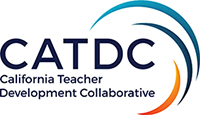Camping and The Pleasure of Small Things at Peninsula School

At Peninsula School, our values include authentic interactions, community, equity, freedom and responsibility, meaningful academics, and play. Keeping these core values in our hearts allows our minds to stay focused on our shared goal, our most important goal: creating a better opportunity for our children and collective future. Peninsula School aims to “create space where children thrive and develop their full promise as confident contributors in the world.” To this end, these values offer us a compass to navigate through the all-too-frequent moments in school and life where time is needed yet can’t be found, where we long for a clear path ahead in a time of great social change.
Our value of community is realized through our annual camping trips. Peninsula School’s collective camping trips add up to an average of 14 unique trips and approximately 65 overnights across all grades each year. These trips begin at a developmentally appropriate age for each child, often around seven or eight. Through camping, students build a deeper awareness of nature, self, and others, growing in self-confidence and the ability to collaborate and problem-solve.
Analog Pleasures: Camping and Community
Between me and a small collection of chatty 6th graders is a fully energized campfire that I helped a few of them to build. A collection of us are sitting in those foldable camp chairs you can buy just about anywhere these days. The fire and the kids’ satisfaction with building one for their classmates to enjoy on this chilly morning near Big Sur ease my pre-caffeine entry to the day.
This is how the days on Peninsula spring camping trips tend to begin—drowsy at first around a small fire ring and gaining energy and volume as more kids gather in various stages of alertness; a mashup of pajamas, sweatshirts and parkas, often hilarious chit chat about dreams or that hapless moth stuck in a tent, and calls for breakfast that includes bacon. And, spoiler alert, aside from interruptions for meals and the occasional hike or trip to the beach during the week, there isn’t much more variation on the theme as the trip wears on.
Since before there was Big Bertha, the Peninsula School bus that was used by fearless Peninsula staff members to ferry students on camping trips to far-flung destinations in the 60’s and 70’s, camping has provided for students a pace and a perspective that drips rather than gushes—pensive and unhurried, far removed from their typical days at home. The intent for these trips is to build community in an analog sort of way.
As I wander across the field, the grey tones from the mist begin to lift, revealing sharper hues. I’m in search of a cup of coffee and witness three kids watching a hawk glide overhead, others talking with friends outside tents, and a few reflecting by themselves. This scene is a demonstration of how camping trips are intentionally devoid of the kind of choreographed activities that keep kids occupied throughout the week; rather, the rhythm of life is comfortably vintage, designed to have students interact with themselves, others and nature, supplanting the busy pace of life in Silicon Valley.
Camping days follow the progress of the sun across the sky and drift quietly, ebbing into meals, sunset, and campfires. The abundant unstructured time allows kids to dive uninterrupted into that 759-page book, to make bracelets while having a conversation with a teacher, to explore the simple but confoundingly weird pleasure of word puzzles, and the chance to whittle a perfectly ordinary stick into a smooth and barkless sculpture. Simple pleasures become an occupation (identifying birds, constellations or flowers) or a sport (swatting flies, swimming in a frigid mountain stream, catching crawdads).
The campfire continues to burn. In fact, they tend to burn all day, becoming a traffic circle of a sort, an intersection for conversation, meetings, marshmallow roasting, singing, and storytime. Chairs around the fire ring are rarely empty, and the talk wanders casually from gaming strategies to characters in novels, from the Warriors to Lizzo, and from rides at Harry Potter World to sibling annoyances. Through these rambling conversations, students deepen their understanding of others, and gain an appreciation of personality variations that, they come to learn, inevitably constitute community.
Working Together
Aside from the progress of the sun, meals are the only mark of time passing. Meal preparation is a focus of these trips and is, in many ways, a core activity for social and emotional learning. It is a logistical task of Olympic proportions yet one that is the most practical application of empathy and caring.
Every student must participate in meal prep, serving and cleaning. When you are an adolescent and part of a small group of peers working together to cut two pounds of strawberries, chop enough potatoes to make home fries for 20, cook 5 pounds of bacon, and shell, whisk and scramble 3 dozen eggs all while creating gluten-free and vegetarian options, your world naturally expands beyond yourself to integrate the needs of others.
Peninsula traditions for the cooking teams become lessons in selflessness; the cooking team prepares and serves the meal and then must wait until all members of the class are served before they themselves can eat. After cooking, serving and eating, the cooking team then cleans pots and pans and the entire “kitchen” area, gaining—somewhat by design—an appreciation of the daily work done by adults at home (you’re welcome!).
Deepening Adult-Student Relationships
As adults on these camping trips, we spend days and nights with students engaged in hiking, laughing, cooking, eating, being goofy, being tired, singing, reading, playing cards, wondering, and generally being ourselves. At Peninsula, the relationships between students and staff on campus during the school week is naturally relaxed and familial, but the days and nights spent in close proximity to adults in these camping activities —even the mundane ones—deepen the adult-student relationships to a profound level.
Students learn that the adults who have chosen to spend their careers with young people are multidimensional, nuanced, complex and whole, and this provides irreplaceable lessons about life, growing up, empathy and understanding.
After a dinner of burritos and salad, the air chills and the stars begin their evening debut. In our busy family lives, the weekdays of many children are populated by school, late afternoon sports practices, Tik Tok and traffic, and much of adolescent social life outside of school occurs through the tunnel of a palm-sized screen. As we crowd around the fire in camp chairs and layers to ward off the chill, it’s comforting to know that our camping trips continue to bring students closer together, to appreciate community, to experience nature, and to indulge for a short time in the pleasures of small things.

Jim Benz is in his 6th year as Head of School at Peninsula School. Prior to Peninsula, Jim was the Director of Upper Schools (4-8) at Far Brook School, a progressive school in New Jersey, was Director of Middle School at Seattle Academy and is a National Board Certified Teacher. In Jim’s view, progressive schools prepare students for a broader future and for more creative responses to a changing society. Done well, progressive schools do an extraordinary job of teaching kids about the joys of learning and encouraging them to continue learning throughout their lives. Jim’s writing has appeared in Independent School Magazine, Art Education Magazine and Accomplished Teacher Magazine, and he has presented at the Annual Conferences of NAIS, NAEA, and NBPTS. His current blog about education is at https://www.peninsulaschool.org/jims-blog.
